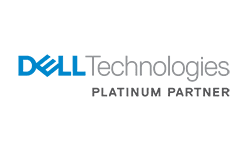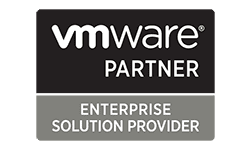Maximizing Organizational Success: A Comprehensive Approach to IT Service Management
Integrating Service Desk, Staffing, Application Development, and Infrastructure for Competitive Advantage
Keith Faulkner, Director of Service Delivery5 Min Read

The strategic management of IT services has become an integral part of the ever-changing landscape of how organizations work. As these entities increasingly rely on technology to drive innovation, enhance operational efficiency, and deliver world-class customer experience, the role of IT Service Management (ITSM) has evolved into a critical component of organizational success. Drawing from over 18 years of experience in IT Service Management, this comprehensive exploration will examine the complexities of ITSM within fully managed services. We will examine how ITSM overlaps with staffing, application development, and network & infrastructure projects to unlock new avenues for innovation, growth, and competitive advantage.
Current Industry Trends in IT Service Management
While IT Service Management is a critical component of efficiency and productivity in the modern work environment, it’s important to analyze current industry trends shaping the ITSM landscape. Several key developments are driving significant transformational change from both an Information Technology and overall Enterprise Management standpoint:
Shift Toward Remote Work: The global shift toward remote work has accelerated the adoption of cloud-based services, remote collaboration tools, and infrastructure virtualization. IT Service Management practices have evolved to accommodate the unique challenges of remote work with a model ostensibly favors remote technical support services with an emphasis on ensuring data security, optimizing workforce productivity, and providing seamless access to the tools and technology the workforce needs.
Focus on Digital Transformation: Organizations across all industries are prioritizing digital transformation initiatives to stay competitive in the digital age. The IT Service Desk and support model that drives it plays a central role in supporting and enabling these initiatives by aligning IT processes with business objective, driving innovation, fostering agility, and freeing up critical staff to grow and transform the organization rather than put out fires.
Embracing Emerging Technologies: The widespread adoption of artificial intelligence and automation technologies is revolutionizing every facet of organizational growth and innovation. But business leaders have to balance the benefits and efficiencies created by these technologies with the customer in mind and ensure that there are clear boundaries between what can be automated and what requires analysis. The IT Service Desk has always felt this challenge, but never as comprehensively than in today’s rapidly changing technological landscape.
Rise of DevOps and Agile Practices: Many organizations are still operating with application development and infrastructure management separated by function and teams, but as adoption of DevOps and Agile methodologies accelerates, thought leaders are increasingly looking to develop collaboration between development and operations teams. IT Service Management best practices are evolving to embrace these methodologies to integrate rapid deployment with excellence in IT support processes.
Focus on Customer Experience: Customer Experience has emerged as the key differentiator for businesses in today’s competitive market. Not just for the organization’s external customers, but internal customers as well. Neither the rude-but-effective IT technician or the inexpensive offshore support solution has been meeting the needs of many organizations’ IT support expectations. A new era of Service Management strives to increasingly focus on delivering exceptional customer experiences by prioritizing user-centric design in self service and support portals, and leverages customer feedback to drive continuous improvement.
The Intersection of IT Service Management and Current Industry Trends
Against the backdrop of industry trends such as these, IT Service Management is continually evolving into Enterprise Service Management and becoming a major focus of managed service initiatives in general. The intersection of Service Management, staffing solutions, application development, and network & infrastructure administration is capitalizing on these integrations to drive organizational success. A well-managed service partner can help facilitate all of these integrations for your business.
Staffing Services: Leveraging Remote Work and Automation
The shift toward remote work has necessitated a reevaluation of staffing solutions withing organizations, particularly in IT support. Many companies are now leveraging remote talent pools to access specialized expertise and enhance operational flexibility. Business leaders are increasingly left with a decision to make about how to balance internal staff with staffing services, consultants, and managed services. Many are looking for a hybrid approach and working with vendors that can deliver both managed services and staffing solutions. Today’s volatile labor market puts a premium on staffing processes, such as candidate screening, onboarding, performance evaluations, and resource allocation. Combined with managed solutions, this enables organizations to optimize their workforce management strategies.
Application Development: Enabling Digital Transformation Initiatives
IT Service Management continues to leverage ITIL as its framework for industry best-practices and ITIL 4, the latest iteration, specifically addresses digital transformation and the need to support agile, responsive application development processes to drive innovation and meet customer demands. By fostering collaboration between development, operations, and business teams, IT Service Management embraces DevOps and Agile methodologies to ensure that the organization’s support needs are not left behind. The integration of AI-powered analytics, business intelligence, analytics and reporting within IT Service Management and keeping your team productive is a foundational element of ITIL 4.
Network & Infrastructure: Ensuring Scalability and Security
The rapid adoption of cloud-based services and remote work combined with the increasingly sophisticated risk of cyber-attack has heightened the importance of scalable, resilient network and infrastructure solutions. The IT Service Desk, driven by service management best practices, is evolving to address these challenges by focusing on scalability, security, and reliability. Nowhere is this more important than the Service Desk, the face of your organization’s information technology support apparatus. Your support center must be scalable and capable, especially as emerging technologies eliminate the “low hanging fruit” of technical support. Event Management, an ITSM sub-processes, is a necessary component of proactive monitoring, predictive analytics, and automation. Every level of the IT Service Desk from Level 1 to the Subject Matter Expert must be able to identify and mitigate potential security threats, performance bottlenecks, and ensure the continuity and reliability of critical business operations.
Strategic Partnerships and Value Creation: Driving Customer-Centric Innovation
Organizations must prioritize delivering exceptional customer experience to maintain a competitive edge – not just with its customers, but also in attracting and retaining talented employees. IT Service Management plays a crucial role in driving customer-centric innovation starting with the Service Desk and aligning the tools and technologies available with business objectives and fostering strategic partnerships. More and more businesses are turning to managed service providers to help drive these initiatives, offer scalable support options and deliver value-added solutions that enhance the overall customer experience.
Continuous Improvement and Adaptation: Navigating Uncertainty and Change
Perhaps the most important element of successful ITSM implementation is continuous improvement. Organizations must embrace a culture of improvement and adaptation to navigate uncertainty and drive sustainable growth. This mindset promotes innovation, agility, and learning and challenges the status quo. A proven ITSM partner can help organizations remain vigilant, staying current with emerging trends, and leveraging the experience of a partner that works with similar entities and industries. Leveraging data-driven insights, predictive analytics, and automation technologies, ITSM professionals anticipate market shifts, capitalize on new opportunities, and drive operational excellence.
Conclusion: Embracing the Future of IT Service Management
The intersection of IT Service Management with current industry trends and customer expectations presents visionary leaders with a wealth of opportunities to drive innovation, enhance operational efficiency, and deliver world-class customer experience. Leveraging a manager service provider as a partner can facilitate organizational ITSM maturity through the integration of service desk, staffing solutions, AppDev, and infrastructure stability. It is imperative that embrace these trends, drive organization change, and champion excellence throughout the enterprise.
Don’t Know Where to Start?
If you don’t know where to start, or would like the help of a proven professional, the experts at GDC are happy to help. Please fill out our contact form and a member of our team will be in touch to learn more about your business.
About Keith Faulkner
Keith Faulkner, Director of Service Delivery, provides operational leadership and supervisory support for all GDC Service Desk projects. Keith monitors performance metrics and is responsible for GDC’s adherence to all client Service Level Agreements (SLA’s). He is responsible for weekly touchpoints with our client and reports on trends, offers suggestions, and drives sustained performance improvements by regularly engaging in analyst and manager level coaching and 1:1’s. Keith graduated with a Bachelor of Science in Business Administration from Shippensburg University and holds an ITIL v3 certification.
GDC empowers businesses to increase employee productivity, maximize investments and improve operational efficiencies. With experienced and certified professionals, we deliver services in the areas of application development, data center, 24/7 multilingual service desk, managed IT services, desktop lifecycle management, project management, and business process consulting. Learn more.




